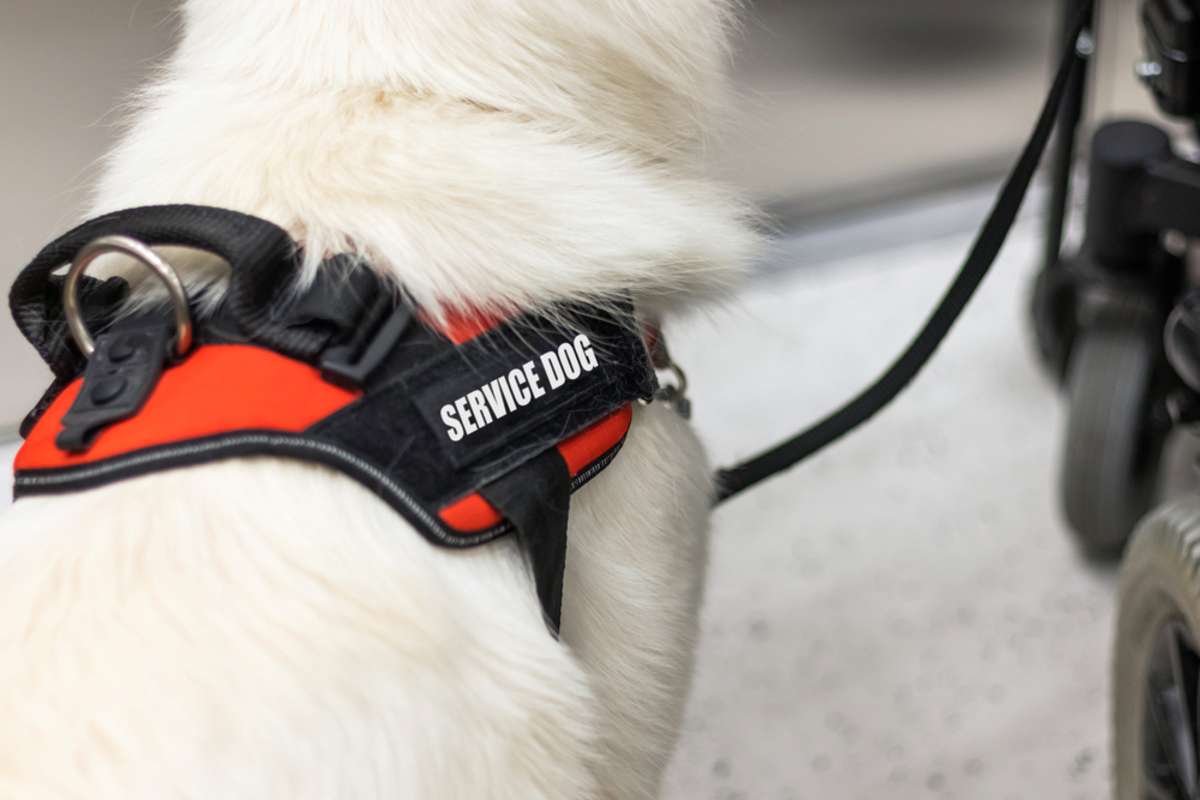Many often find themselves contemplating whether or not to allow furry companions in their rental properties. While some may question the significance of having pets, others might have concerns about potential liabilities and damages that could arise.
However, there are numerous compelling reasons why it could be beneficial to consider welcoming pets into your rental property in San Diego.
In this comprehensive blog, we will delve into the various pros and cons associated with allowing pets. Additionally, we will provide valuable insights and practical tips on how to effectively manage and accommodate our four-legged friends within your rental properties in San Diego.
Pros of Allowing Pets
As mentioned before, there are pros and cons to allowing a responsible pet owner in your rental properties. First, let's explore the potential benefits you could experience when making the decision to allow pets.
Personal Benefits
It has been widely proven through numerous studies and research that pets have a significant positive impact on human health and well-being. Not only do pets provide companionship and comfort, but they also play a crucial role in reducing stress and anxiety levels. The unconditional love and affection that pets offer can have a profound effect on our mental and emotional state.
Longer Lease Agreements
In addition to the personal benefits, there are also practical advantages for landlords and property owners when it comes to allowing pets in rental properties. Studies show that rental properties that allow pets tend to have longer tenancies, as tenants with pets are more likely to stay in their rented homes for extended periods of time. On the other hand, properties that do not offer pet-friendly options often experience higher vacancy rates.
Grow Your Pool of Potential Renters
By allowing pets in your rental property, you not only enhance the well-being of your tenants but also open yourself up to a larger pool of potential renters. Pet owners are constantly searching for pet-friendly rental properties, and by accommodating their needs, you have the opportunity to attract a diverse and loyal tenant base.
In conclusion, the positive impact of pets on human health, coupled with the practical advantages for landlords, makes it clear that embracing pet-friendly rental policies can be highly beneficial for both tenants and property owners alike.
Increase Revenue
By allowing tenants to have pets, landlords can collect pet deposits and fees, which in turn can help increase their rental income.
Additionally, allowing pets can attract a larger pool of potential renters, as many people consider their pets to be part of their family and are actively looking for pet-friendly accommodations. This can lead to a higher demand for the rental property and potentially reduce vacancy periods, ensuring a steady stream of income for the landlord.
Furthermore, studies have shown that pet-friendly properties tend to have longer-term tenants, as pet owners are often more committed to finding a stable and suitable living environment for themselves and their furry companions.
Overall, embracing pet-friendly policies can be a strategic move for landlords that not only boosts their rental income but also enhances tenant satisfaction and long-term occupancy rates.
Downsides of Allowing Pets
Though allowing pets into your rental property has its advantages, there are some drawbacks to consider.
 Potential for Damage and Cleaning Costs
Potential for Damage and Cleaning Costs
One of the common worries that landlords have is the potential for damage to their properties. Pets can often cause wear and tear on carpets, furniture, walls, etc., which could lead to costly repairs or renovations. Additionally, owners are responsible for any cleaning fees that come with their pets.
Noise Complaints
Another concern that landlords might have is the potential for noise complaints. While some pets may be relatively quiet, others can become quite loud. This could lead to disputes between neighbors and create an unpleasant living environment in your rental property.
Lack of Compliance With Pet Policies
Another issue to consider is the potential for tenants not complying with pet policies. Tenants must always adhere to the rules and regulations outlined in their lease agreements, including any additional stipulations regarding pets. Failure to abide by these policies could result in fines or eviction.
Liability
Finally, there’s the potential for liability in case of a pet-related injury or incident. It’s always best to have tenants sign a waiver at the time of move-in to protect yourself and your property from any unforeseen circumstances.
Managing Pet Policies
If you decide to allow pets in your rental property, it is important to establish clear rules and guidelines in addition to the commonly known rules of cleaning and maintenance. By implementing a comprehensive pet addendum and requesting a pet deposit, you can effectively manage potential liabilities and minimize damages.
Pet Addendum
The pet addendum, an integral part of the lease agreement, will comprehensively document all essential information about the pet. This includes not only the pet's name, breed, age, type, and weight, but also any notable characteristics or special needs. By providing this level of detail, both the landlord and tenant can have a thorough understanding of the pet residing on the property.
Moreover, in addition to capturing vital information, the pet addendum will outline various pet-related fees and policies to ensure a harmonious coexistence between the pet and the property. These may include pet deposit, pet rent, and rules regarding pet behavior and clean-up responsibilities.
By including a detailed pet addendum, both parties can rest assured that all necessary information is recorded, promoting a transparent and mutually beneficial pet-friendly environment within the property.
Pet Deposit
When renting a place that allows pets, it's common to encounter additional fees such as a pet deposit. This serves as a financial to cover any potential damages that may be caused by your furry friend.
For example, it can help address issues like scratches on wood floors or chewed-up baseboards, ensuring that both you and your landlord can maintain a harmonious living environment.
Having a pet deposit in place, provides peace of mind and reassurance for both parties involved, fostering a sense of responsibility and accountability for pet owners.
Pet Fees
In addition to pet deposits, pet fees may also be required. A pet fee can be utilized for a professional carpet cleaning at the end of the lease term, ensuring that the property is left in pristine condition for future tenants.
Moreover, a pet fee can be established as a monthly fee to offset any wear and tear on the property caused by the pet. This way, both the landlord and the tenant can have peace of mind knowing that the property will be well-maintained and ready for the next tenant.
It's a win-win situation that promotes responsible pet ownership and preserves the value of the property in the long run.
By implementing these measures and providing clear guidelines, you can create a harmonious environment for both tenants and their furry companions, while safeguarding the condition and value of your rental property.
 Differentiating Assistance Animals
Differentiating Assistance Animals
When dealing with pets, it is essential that you differentiate between assistance animals and mere pets. Assistance animals, such as service animals and emotional support animals, are allowed under the Fair Housing Act and the Americans with Disabilities Act.
An ADA-authorized companion animal can be requested by a tenant with a disability and is usually allowed in the rental property even if the lease prohibits pets. In such cases, property managers are expected to treat such cases with sensitivity and caution.
Consult a Property Manager
Pet-friendly rental properties can benefit landlords in numerous ways. By allowing pets, landlords can significantly expand their pool of potential tenants, increasing the chances of finding reliable and responsible individuals to occupy their properties. Furthermore, welcoming pets often results in longer lease periods, as pet owners tend to stay in one place for a longer time to provide stability for their furry companions.
Managing pet-related matters and legal issues can be complex, especially for landlords who are new to the realm of pet-friendly rentals. To navigate these challenges effectively, seeking assistance from a reputable property management company, such as HomeTeam Property Management, a San Diego property management company, can be immensely beneficial. They possess the expertise and experience necessary to handle tenant screening, enforce pet policies, and manage any expenses related to pets.
Offering pet-friendly rental properties in San Diego can be a win-win situation for both landlords and potential tenants. By allowing pets while incorporating appropriate clauses into the lease agreement, landlords can attract responsible pet owners who value a pet-friendly living environment. Remember, partnering with a reliable property manager will help you make informed decisions regarding pet policies and ensure a smooth and hassle-free rental experience for both parties involved.
Download our free Tenant Screening Checklist for a comprehensive guide to finding the ideal tenants for your pet-friendly rental properties.
 Potential for Damage and Cleaning Costs
Potential for Damage and Cleaning Costs Differentiating Assistance Animals
Differentiating Assistance Animals